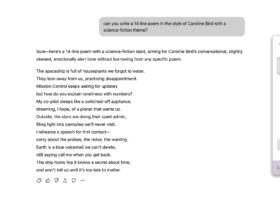Poetry titles, aka the naming game
Earlier this week I had two tasks on the go: firstly to whip my pamphlet into shape before sending it off to the Mslexia comp (well, someone has to win it!) and secondly to have an initial read through of several hundred poems in my ‘guest co-selector’ role for a magazine.
It was interesting to do the jobs pretty much side-by-side: to put myself in the shoes of the submitter and the selector at the same time. Of course there are aspects to a pamphlet submission that don’t apply when sending off individual poems. I’ll probably talk more about putting the pamphlet together in another post. But one of the first things I realised as I made my way through the pile (and which made me look again at my pamphlet) was the importance of titles.

I don’t know about you but I often struggle with titles. I know there are many guidelines about this, and everyone has their preferences. I’ve often heard it said that the title is an opportunity: a first chance to get the reader’s attention. Personally, I have an aversion to those obviously attention-seeking titles you see on competition shortlists. So that leaves us with ‘try to be original, but not too cute.’
Sometimes I start with what I think is a great title, then work backwards and try to write a poem that fits. This rarely results in a fine poem, but is a fun exercise. Am I the only one with several pages of a notebook filled with (what I think are) great titles? I’ve also got a few magazine titles up my sleeve, which of course can be as bizarre as you like. And because there are so many small journals in existence, it’s hard to tell the real from the fictional, and does it really matter? Certainly not on social media where things often get blurred. Every now and then I’m tempted to poet to Facebook something like “Delighted to have had a poem selected for Builder’s Bum Magazine!” and wait for the likes and the congratulatory replies. I’ll put money on nobody saying “What the hell magazine is that??”

But seriously … as Don Paterson says, “The title is where you can put a clue as to what the poem is about. Once you stated that, don’t keep saying it.” Obviously I wouldn’t dream of messing with the DP, but this isn’t as easy as it sounds, is it? In my anxiety to avoid a boredom-inducing title I’m aware of sometimes being a tad too obscure. It’s as if the title and the poem used to be attached, but after all the edits there is now a huge gap between the two. Nevertheless, I like a title that makes you work. I saw this poem by Jack Underwood the other day and was so intrigued by the title I read right through to the end, something I confess I’m not always good at with long-ish poems, if I’m not gripped early on. Then I wanted to read it again.
I do think a title can make or break a poem, in the sense that a good poem can probably get away with a poor title, but a mediocre poem can rise if the title has been given some thought. I also think it’s a wasted opportunity to give a poem about a cat the title ‘My Cat’.
What do you think? Read any good titles lately? What goes through your mind when giving a poem a title?



I find pretentious titles really off putting at times if they’re massively obscure. But recently saw a brilliant title whilst judging the Poetic Republic poetry comp – it was called ‘Dry retching in a supermarket car park at 4am’ or something to that effect which was kinda hilarious and a good entry into the poem! Makes me think I need to try a bit harder with my own poem titles! 🙂
Ha ha! Thanks Penny… yes, sometimes the longer titles are funny. But they can have a ‘trying too hard’ element as well. It’s a fine line!
Great post again Robin. I think I read a tweet by Ian McMillan, where he said that titles do 50% of the job of a poem. I’m not sure I’d go that far but they should be an on-ramp. I really like the Jack Underwood poem, which was shortlisted for the Forward Prize, and although the title is intriguing, I can’t quite get the link to the theme.
That’s interesting – 50% seems quite a high percentage! I didn’t know that JU poem was shortlisted for the Forward Prize. As to the relevance of the title, it wasn’t obvious to me either, but for me that didn’t matter, it felt like one of those times when you just have a good feeling/reaction to something and can’t explain why. Thanks for your comment Peter.
Would anyone care to elucidate on why THANK YOU FOR YOUR EMAIL is classified as poem and not what it is, a beautifully written and observed musing?
Ah, the age-old ‘what makes a poem a poem’ question…
Nice post. I also struggle with the originality-cuteness (and …-pretentiousness) trade-off. My favourite recent-ish title is “Explaining the Plot of Blade Runner to My Mother Who Has Alzheimer’s”, which was up for the Forward Prize a couple of years ago (though I *just* found it was withdrawn from the competition…!)
If you haven’t read it already, you might enjoy Billy Collins’s interview in the Paris Review: http://www.theparisreview.org/interviews/482/the-art-of-poetry-no-83-billy-collins — he has some good advice regarding how much to reveal or not about the circumstances of the poem, especially with the use of titles.
“Poems, for me, begin as a social engagement. I want to establish a kind of sociability or even hospitality at the beginning of a poem. The title and the first few lines are a kind of welcome mat where I am inviting the reader inside. What I do with the reader later can be more complicated, but the beginning of the poem is a seductive technique for me, a way of making a basic engagement.”
“When I get a book of poems, I look for a fancy title or a short one.”
The C J Allen plagiarism controversy, oh yes, I think that poem is probably now memorable for all the wrong reasons! Thanks so much for the link to the Billy Collins interview- I like the idea of the welcome mat. Although that has a cosy ring to it, as a opposed to a jolt or a shock, a “hello, this is different” moment. I think so much is in the context – what you’ve read moments before or what comes after – I find that can alter very much how I like a poem and what I read into it.
A post that raises lots of issues that play on my mind.
Titles that are the same as first lines can seem like a cop out but they seem/seemed to be used rather a lot and can be better than overly clever ones.
I think a lot depends on the matter of whether a ‘good poem’ is deemed to be one that can stand alone. I have a bit of an issue with this as I love hearing about the inspiration for a poem at a reading. In these cases, the titles tend to be far less important than when one is reading a poem without any background information and in that case the title can be the added extra that lures one in and which adds more to the poem than that which is in the body.
Thanks for the food for thought.